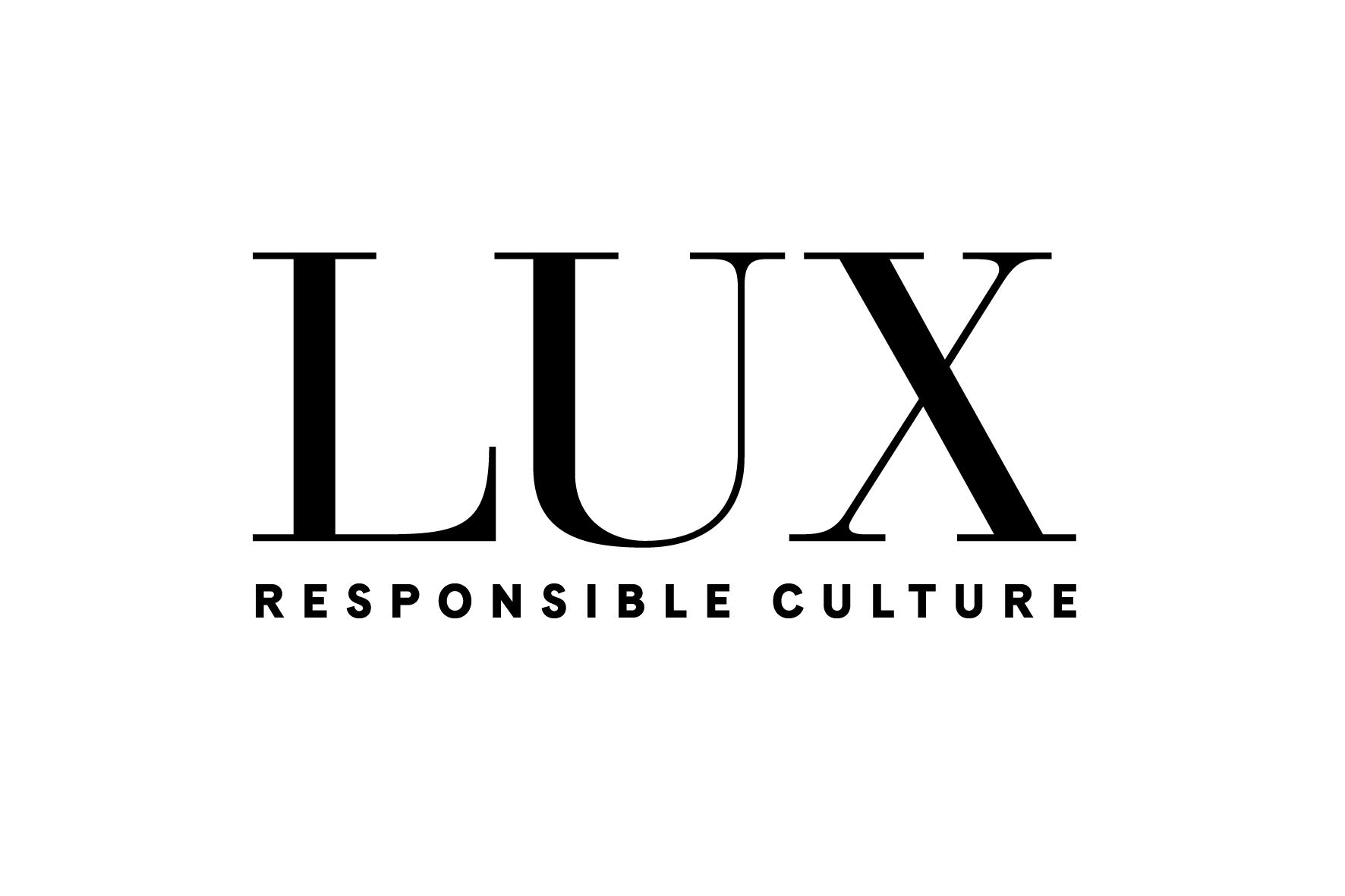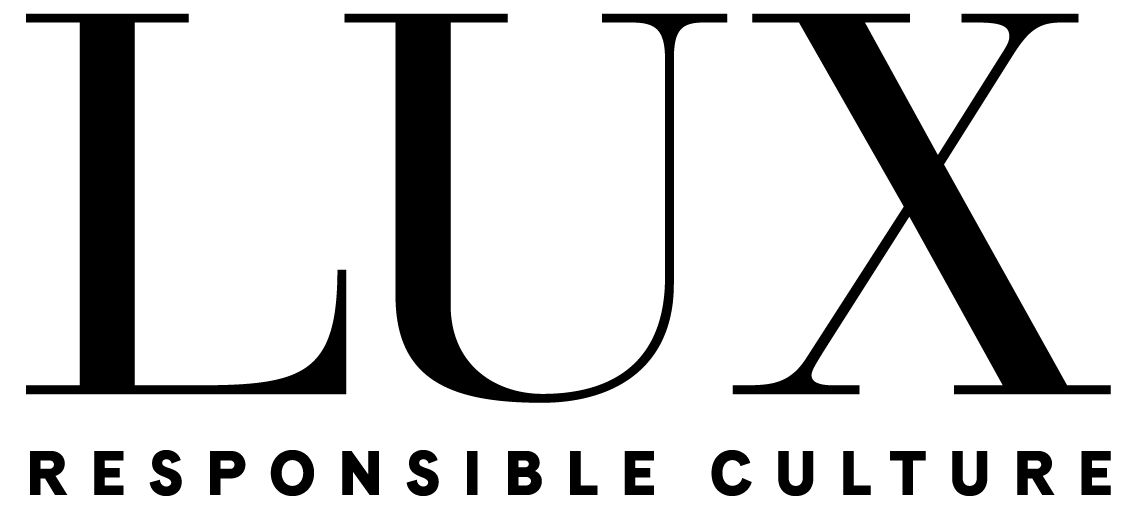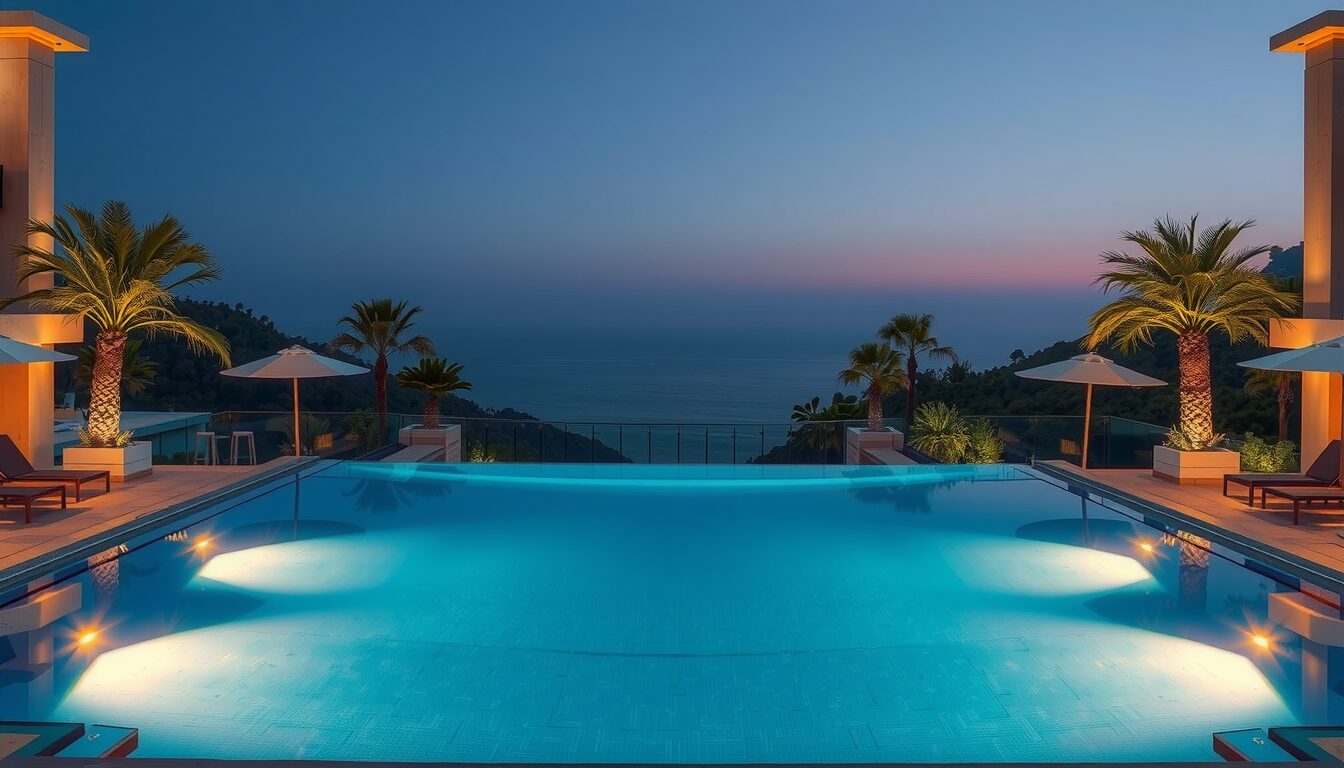
A luxury hotel pool as imagined by DALL-E, an AI image generator
LUX Editor-in-Chief Darius Sanai stays at many of the world’s greatest hotels every year. He is a long-term admirer of, and advisor to, a number of them, and reviews them for our print magazine’s Luxury Travel Views section and here online. As the year draws to a close with his 30th luxury hotel stay, he offers some advice on what not to do, which every top hotelier should already know
A luxury hotel should never…
1. Ask us how we slept
We may not have slept because we had jet lag, or we were working, or we had chronic back pain, or our girlfriend rang at 2 am and asked who we were with, or we were anxious or depressed, or we were having a party with some Latvian hookers. Or we may have slept fine. All of these happen a lot in luxury hotels. Either way, these are personal things and a good hotelier will know there is only one answer anyone can give, which is an awkward “Yes”. Don’t create awkwardness. Conversely, if we slept badly through some fault of yours, like a noisy air con unit, we will tell you without being asked.

An AI generated image of a hotel room with stunning views onto an imaginary metropolis
2. Serve an a la carte only breakfast
We know exactly why you do this. For a big four star hotel, food wastage from a buffet is cheaper than the staff needed to manage and serve everyone a la carte. For a luxury hotel (usually smaller), you can manage costs by having an a la carte only. One luxury hotel in Paris served me a basket of viennoisseries (cheap, and which I don’t eat), a filter coffee and a derisory slice of supermarket toast with two small tomatoes on it, for more than €40. Bite the bullet, create an excellent buffet, include it in your rates. (We may make an exception for very small luxury hotels, 20 rooms or less, but you had better serve a hell of an a la carte menu.)
Follow LUX on Instagram: luxthemagazine
Oh, and absolutely no branded packets of cereal on show, ever. You don’t serve cans of Coke in your restaurant, so don’t serve packs of Coco Pops either. If you must have mass manufactured cereals, rather than making your own or buying from better, smaller, organic brands, serve them out; but better still, terminate the Kelloggs pipeline and serve proper cereals, a marginal cost increase – but when did anyone tell you running a luxury hotel would be cheap?
Exceptions are allowed for island resort and other remote locations where raw ingredients are hard to come by: but oats, nuts and seeds for your own cereal are pretty universal. You may have a Michelin-starred restaurant, so why serve breakfast cereal that’s sold in every supermarket chain?
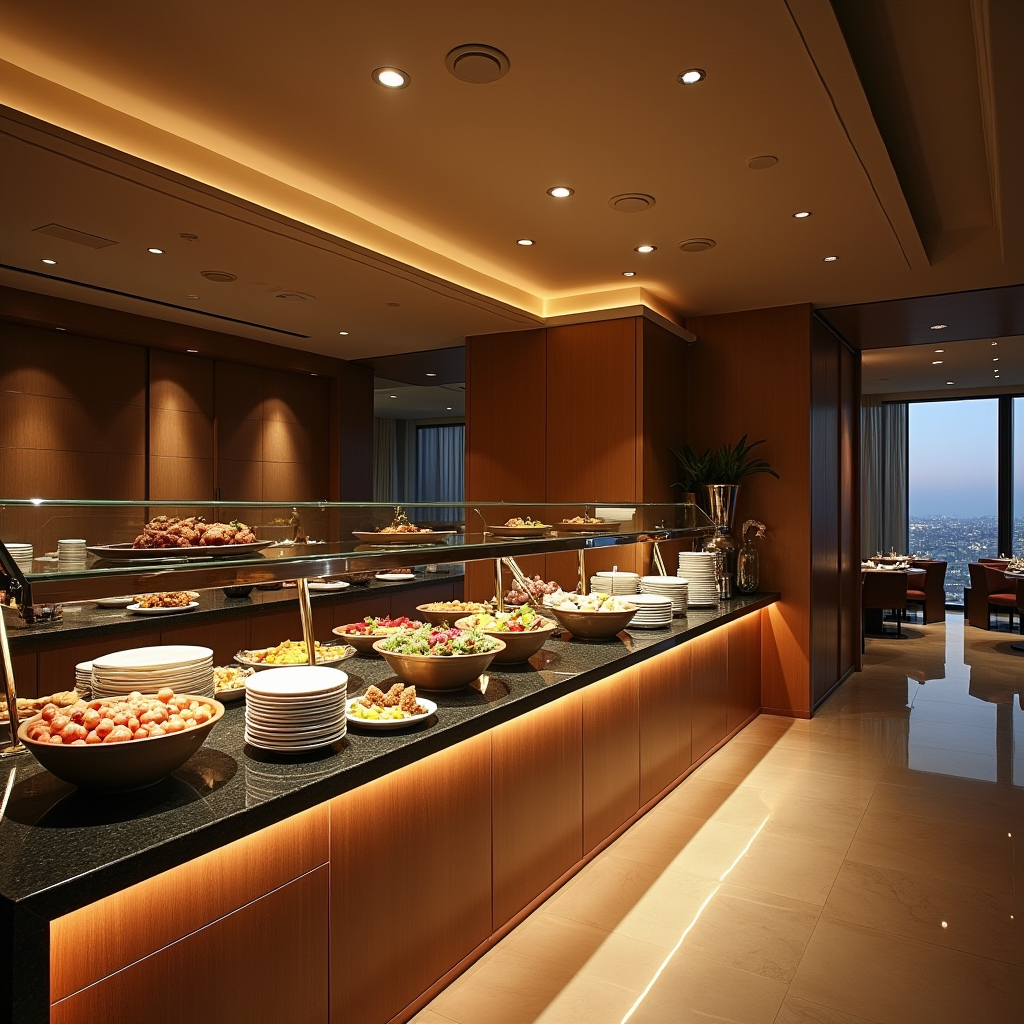
A luxury hotel buffet breakfast as conceived of by OpenArt AI
3. Leave bathroom flyers asking primly if you don’t want your towels or linen cleaned for environmental reasons
These abominations first popped up in the 1990s, little signs saying ‘oh, do you know how much energy and water is wasted by washing linen and towels?’ We do know that, and we know that if you wanted to start a business that was carbon- and planet-positive, you wouldn’t start a hotel. Hotels, and travel, are inherently damaging to the planet. So you could leave out signs telling your guests not to travel anywhere, but that would be self-destructive, so don’t disguise a cost-saving as your own worthiness.
Do something environmental that requires investment – reverse osmosis, heat pumps, banning plastic packaging, reusable crates for your suppliers- and shout about that instead. And wash my towels.
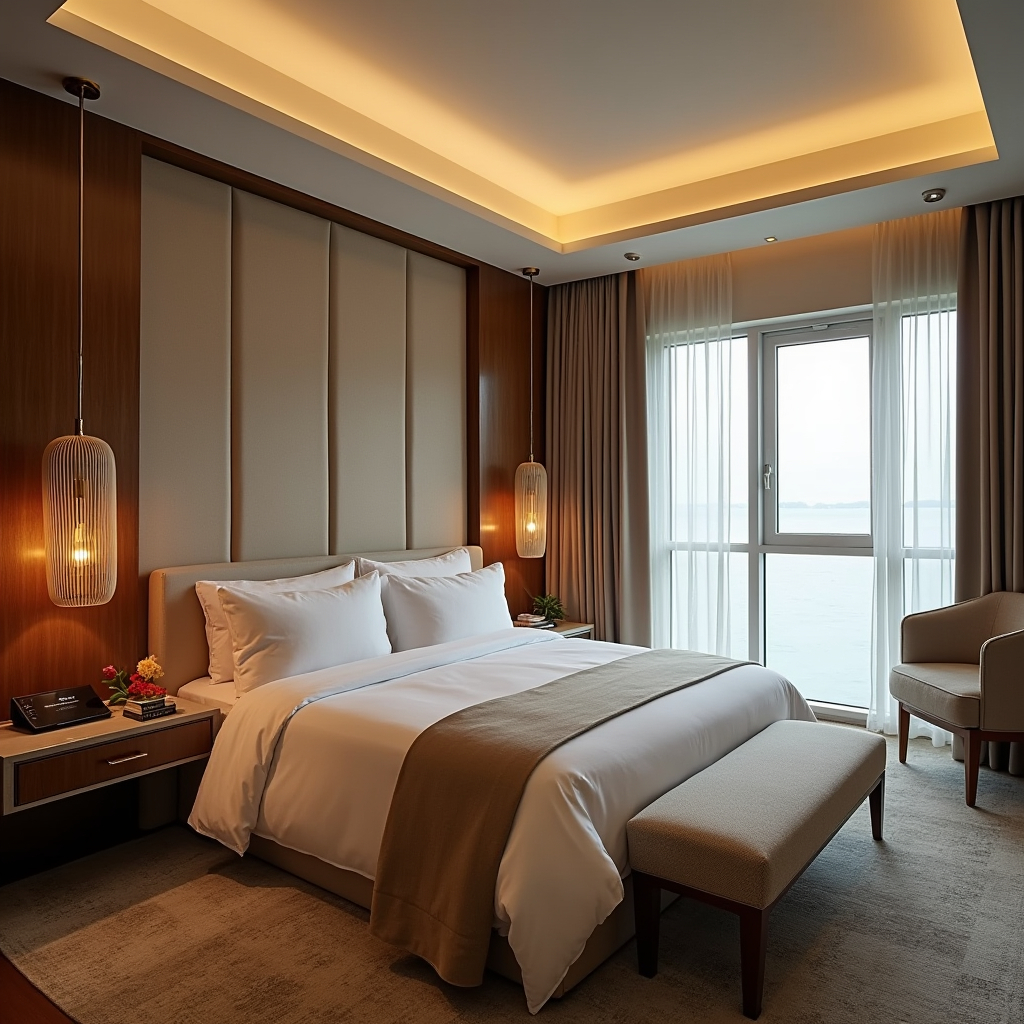
A luxury hotel bedroom generated by OpenArt AI
4. Over digitise your media and in-room collateral
Even as magazine and newspaper people, we get it. Many people, particularly from particular places or generations, don’t read print anymore. But many do. So, the logical thing for a luxury hotel is to offer every guest, on checking in, a choice of newspaper to be delivered to their room. If they decline, you don’t need to put the order in for the next day.
With magazines, do not begin to believe an abominable “e-reader” is an alternative to an actual magazine. Nobody uses “e-readers” and we don’t design magazines to be read by them. So place a fine quality publication, like Conde Nast Traveller or LUX, in each room, alongside your own (your own magazine is an important communication and amplification and clientelling tool – do it well).
If your CRM system is up to it (and it should be) find out the preferences of your top tier repeat guests so they have their copy of Fly Fishing Monthly or Auto Motor und Sport waiting in their room; a true way to surprise and delight at less than half the cost of a bottle of champagne. You will need to have a staff member coordinating this, but you can use all the staff hours you free up from not serving an a la carte breakfast.
Read more: A historic tasting of Masseto wines
Meanwhile, if we want room service or to know what the hotel restaurants serve, we like picking up a nicely designed, clean folder and looking through a non-tatty selection of pages dedicated to the topics. We don’t like having to find a remote control, fiddle with it to get rid of the “Welcome” message, mistakenly click on to the in-house movie of a couple with very white teeth in the spa, get rid of that, find the “Services” menu, tap down to reach “Room Service”, mistakenly tap the wrong way and get the couple in the spa again, tap back to room service, tap along to the appetisers sub-menu…luxury is supposed to be about pleasure.
And just stop using QR codes for your room service menu. We have arrived at your luxury hotel for relaxation and escape. We don’t want to be picking up the same tool we have been using for sending emails during our 12 hour journey, and squint at a menu that doesn’t fit on a phone screen. Make the investment in proper printed collateral.
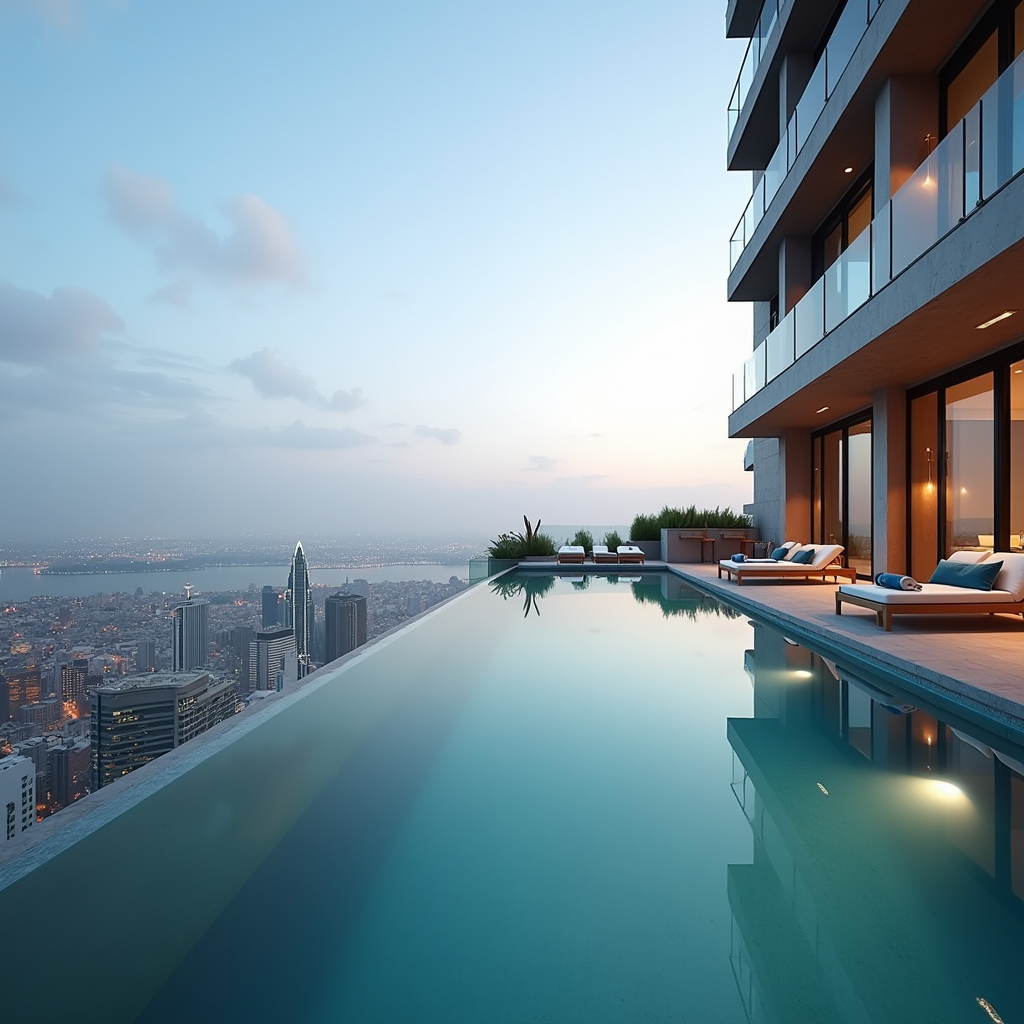
A luxury hotel infinity pool looking over an imaginary megacity created by AI OpenArt
5. Forget who we are
We understand, just about, if we return to the hotel in the evening and receptionist on evening shift that we haven’t met doesn’t instantly recognise our face from the 200 other guests that day. But, if we have had an issue – window not sealing, tap broken, car didn’t turn up, whatever, issues do happen – and we report back to the evening shift, and identify ourselves, we expect the first person we speak to to a) know all about the problem and b) know what is being done to fix it. If we have to explain who we are and what happened, more than once, there is no luxury in being treated like a repeat caller to a call centre.
And if any of your front desk staff meet us and forget who we are subsequently… that’s not hospitality.
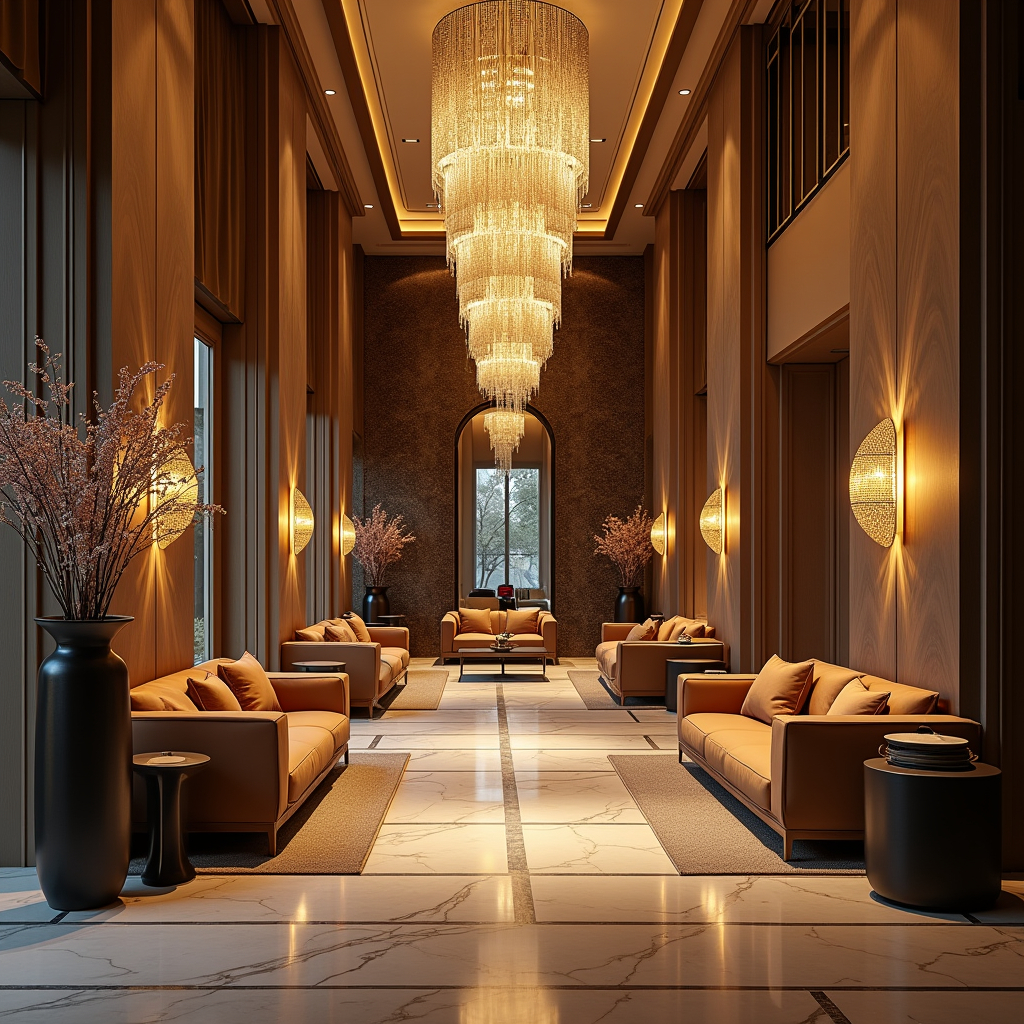
A high-ceilinged, grand hotel foyer generated by OpenArt AI
6. Take up our time with wifi
It’s minor, but irritating enough to black mark an arrival experience. We try and log in to wifi and are redirected to Swisscom – its always Swisscom – and we need to scroll down a list of country codes, enter our number, receive a code, and tap that in. Firstly, a third party data capturing your guests is not cool. Secondly, make the effort to install your own wifi, take responsibility for it and have a simple hookup. One-tap hookup is best, entering room number and name is acceptable. Nothing else.
I have been careful not to name any specific perpetrators of the above crimes against luxury above, but I am going to single out one group for praise. Peninsula hotels have their own, very clearly designed tablets with idiot-proof navigation on which you can make all your in-room dining, lighting, curtain and other choices. No need for a physical folder there, but Peninsula also value print, with several magazines of their own in the rooms, and a proper writing desk and pad. Pure class; and, as a disclaimer, I have paid for my own room every time I have stayed at a Peninsula, so no bias here. Others take note.
